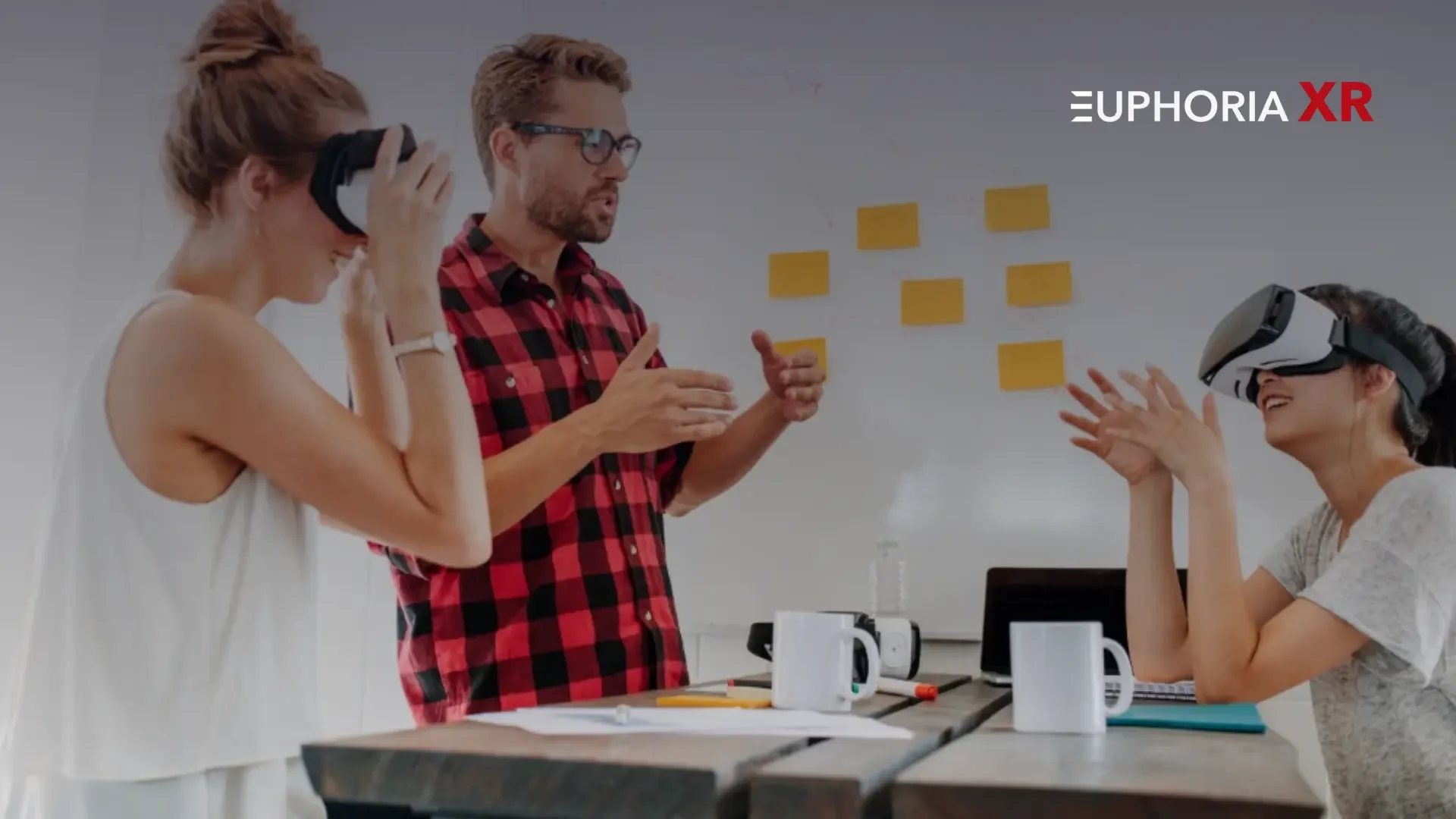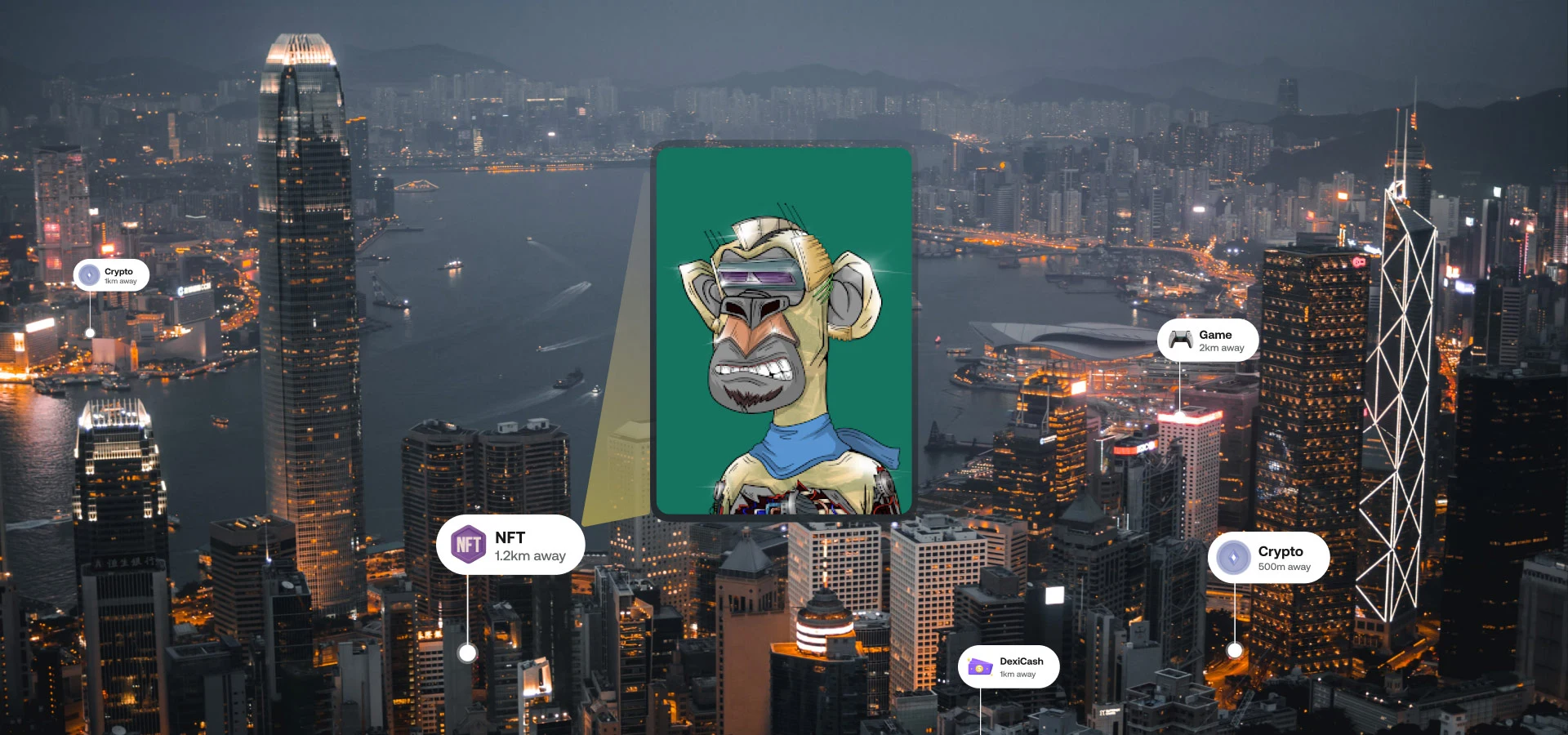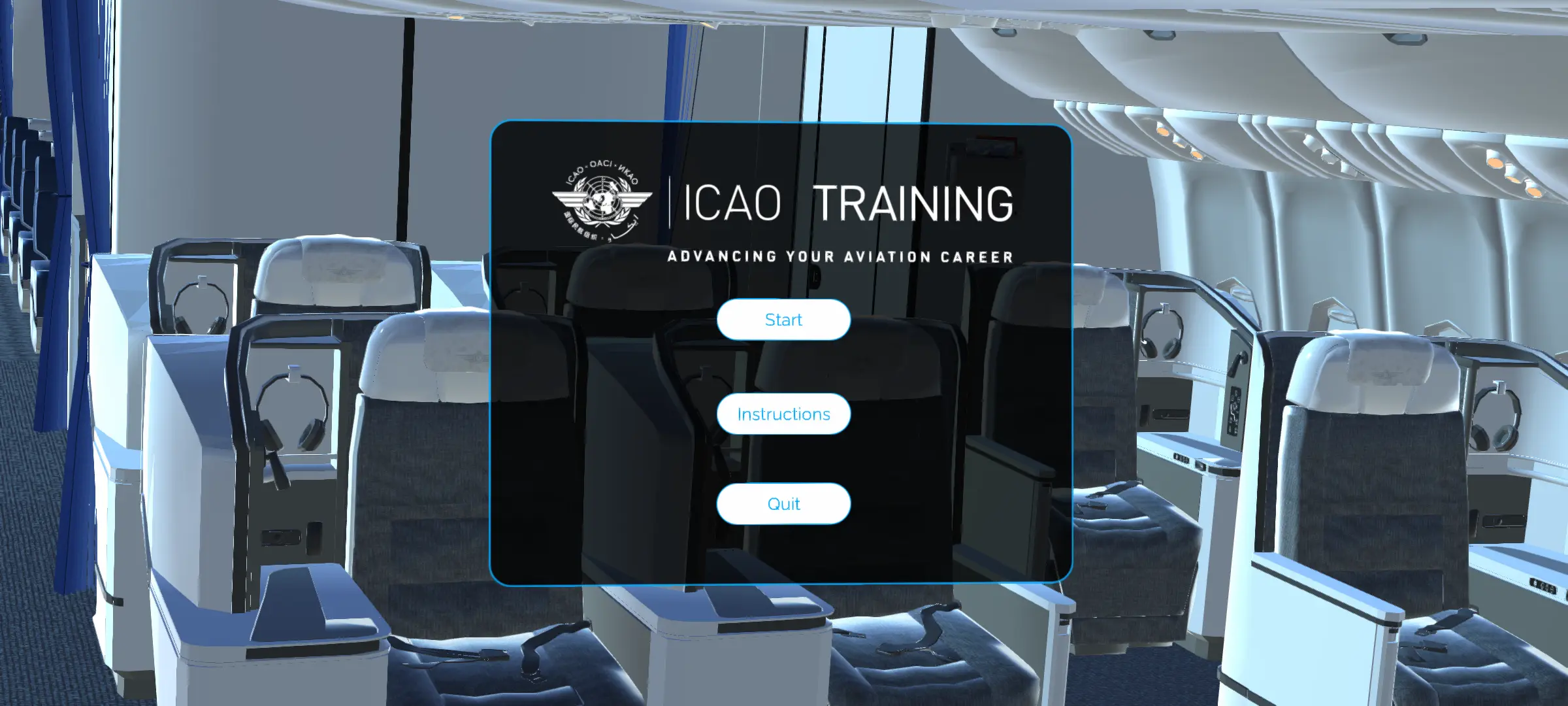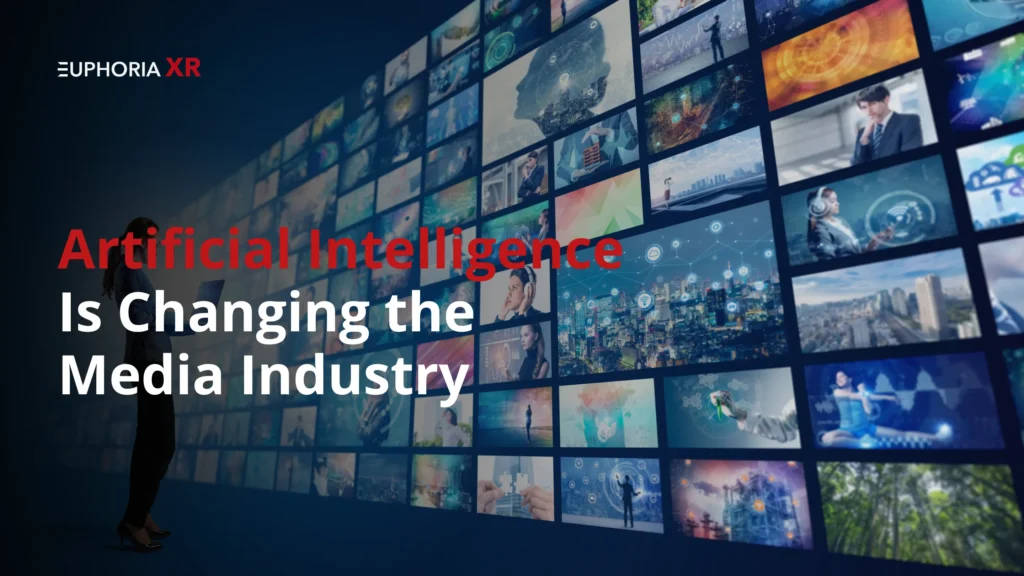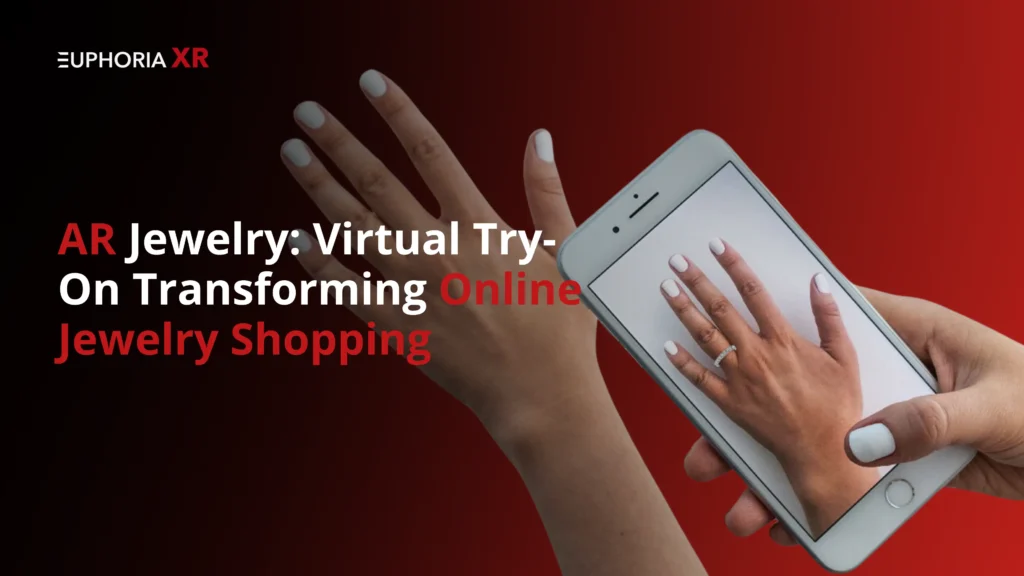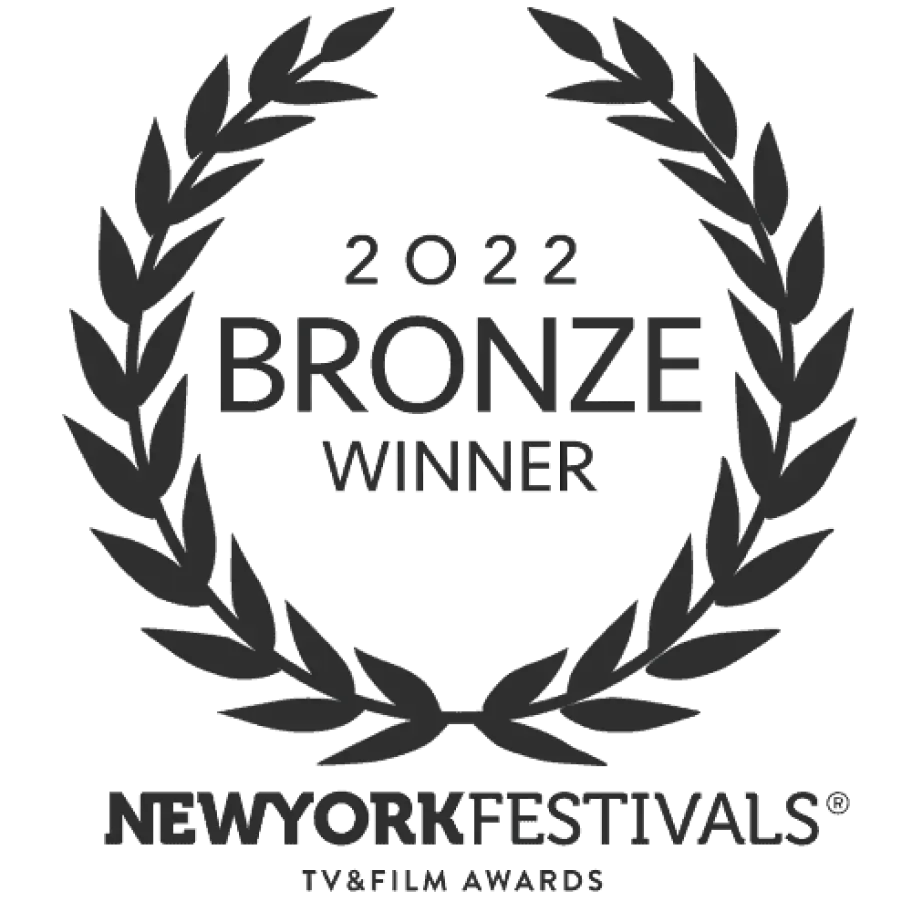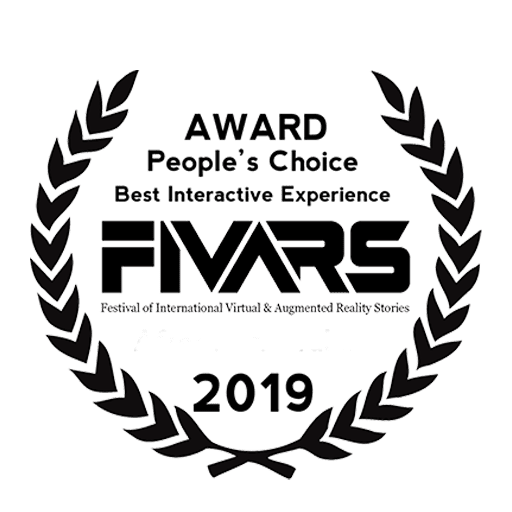The AR and VR market is expected to generate $40.4 billion in revenue in 2024. It is projected to grow at an annual rate of 8.97% from 2024 to 2029, reaching a market volume of $62.0 billion by 2029.
AR/VR Consulting Services play a crucial role in guiding businesses through the complexities of these technologies, helping them craft impactful digital experiences. This blog will explore how AR/VR consulting can help build the next generation of digital experiences.
The AR and VR market will have 3.7 billion users worldwide by 2029.
Augmented Reality (AR) enhances our interaction with the physical world by overlaying digital information on real objects and spaces. It is used for remote collaboration, surgical training, interactive learning, and proximity marketing, making our world more informative and connected. In contrast, Virtual Reality (VR) offers complete immersion in digital worlds, transcending physical limitations. It transforms learning, working, communication, healthcare, and more, making virtual experiences as impactful as real ones.
Understanding AR and VR Technologies
Augmented Reality (AR)
Augmented Reality enriches our view of the real world by adding digital information to our surroundings. This technology blends the physical and digital worlds, creating interactive experiences that enhance our understanding and engagement. Here are some notable examples:
Pokémon GO: This popular mobile game uses AR to superimpose virtual creatures onto the real world, which players can see through their smartphone screens. This mix of digital characters with real-life environments encourages users to explore and interact with their surroundings in new ways.
Google Lens: This app uses AR to provide information about objects and text captured through a smartphone camera. For example, pointing the camera at a landmark might show historical facts, or scanning a product could reveal reviews and pricing.
IKEA Place: IKEA’s AR app helps users visualize how furniture and home decor items will look in their own homes before making a purchase. By projecting virtual furniture into a real room, users can see how it fits with their existing decor, making it easier to make decisions.
Virtual Reality (VR)
Virtual reality immerses users in digital environments, creating a sense of presence separate from the real world. VR is used in various fields to provide unique experiences and practical applications:
Medical Training: VR platforms, such as those used by medical institutions, simulate surgical procedures, allowing practitioners to practice in a risk-free setting. This helps them gain hands-on experience and improve their skills without real-world consequences.
Real Estate: Companies like Matterport create 3D virtual tours of properties, enabling potential buyers to explore homes or commercial spaces remotely. This technology allows users to experience the layout and features of a property as if they were there in person, which is especially useful for long-distance or international buyers.
Entertainment and Gaming: VR gaming systems, such as those offered by Oculus Rift and HTC Vive, transport players to virtual worlds where they can interact with characters and environments. This immersive experience allows for deeper game engagement, from exploring fantastical landscapes to participating in high-stakes adventures.
Education and Training: VR is also applied in educational settings to create interactive learning environments. For example, VR can simulate historical events or scientific experiments, giving students a more engaging and hands-on approach to learning complex subjects.
We are here to assist you if you want to explore how AR or VR can benefit your business. Euphoria offers specialized AR/VR Consulting Services to help you discover these technologies effectively. Our team provides support throughout the entire process, from crafting a strategy to designing and implementing engaging digital experiences.
The Role of AR/VR Consulting
What is AR/VR Consulting?
AR/VR consulting involves helping organizations understand and implement these technologies effectively. Consulting services typically include:
Strategy Development: Consultants help businesses create plans that align with their goals, improve customer engagement, or optimize operations.
Technology Assessment: They evaluate various AR/VR tools and platforms to recommend the best fit for the organization’s needs, considering factors like cost, functionality, and scalability.
Design and Development: Consultants assist in designing and developing AR/VR experiences. For example, a retail company might work with consultants to create a virtual store where customers can browse and interact with products as if they were in a physical store.
Implementation and Integration: They oversee integrating AR/VR solutions with existing systems to ensure smooth operation.
Training and Support: Consultants provide ongoing training to help users adapt to the new technology and maximize its benefits.
DexiHunter: Explore, Conquer, and Earn in an Augmented Reality UniverseDexiHunter takes gamers into a universe where reality and fiction merge, offering endless exploration and conquest. As part of our latest AR development project, we use mobile devices to let players search real-world areas for bounties of various rarities, each potentially leading to valuable rewards. In the Dexiverse, treasures include rare gaming assets and cryptocurrency. Players who excel at using AR Rockets can enhance their standing and claim significant prizes. The platform’s advanced AR technology lets users earn and redeem AR bounties, blending digital content with real-world interaction. DexiHunter integrates various digital assets into a user-friendly wallet, making managing NFTs, cryptocurrencies, and tokens easy. Additionally, it serves as a social media platform with a simple interface, ideal for events and customer engagement. This mix of blockchain and AR highlights a promising future for the digital world. |
Benefits of AR/VR Consulting
Enhanced User Engagement: AR/VR consulting services help create interactive and engaging experiences. For example, IKEA’s AR app allows customers to visualize how furniture will fit in their homes, making the shopping process more engaging and helping customers make informed decisions.
Innovation and Competitive Edge: Adopting AR/VR solutions can set a business apart. L’Oréal’s app, which lets users virtually try on makeup products, is a prime example of how technology can be used to offer innovative marketing experiences.
Customization and Personalization: AR/VR consultants customize experiences to fit specific needs. In the automotive industry, Audi’s VR showrooms let customers explore different car models and configurations from their homes, providing a personalized shopping experience.
Efficiency and Effectiveness: AR/VR solutions can streamline processes and improve efficiency. Boeing, for example, uses AR to assist in wiring aircraft, which speeds up the process and reduces errors.
Case Studies and Success Stories
Retail Transformation: Lowe’s, a major home improvement retailer, has embraced AR technology to enhance the customer shopping experience. Their “Lowe’s Vision” app lets users see how products will look in their homes before making a purchase, leading to increased customer satisfaction.
Virtual Reality Training Programs: Beyond healthcare, VR training programs are transforming various industries by offering realistic simulations for skill development. For instance, VR training is used in manufacturing to simulate complex assembly processes, helping workers practice and perfect their skills in a risk-free environment.
Healthcare Innovation: VR is making strides in training and therapy in healthcare. Osso VR provides a platform where surgeons can practice procedures in a virtual setting, helping them improve their skills and prepare for real-life surgeries.
Real Estate Revolution: Matterport offers 3D virtual tours of real estate properties, allowing prospective buyers to explore homes remotely. This has become increasingly popular, especially for buyers who need help to visit properties in person.
ICAO Training Program: Transforming Aircraft Design and Safety with VRAt Euphoria, we specialize in VR development, and we proudly showcase our latest project, the ICAO Aircraft Training Experience. This initiative aims to elevate safety protocols, refine aircraft design, and enhance the training of aviation experts. We have integrated advanced VR technologies into Android, WebGL, and MetaQuest VR platforms to create a user-friendly interface for aviation professionals. The ICAO Training Program allows users to interact with and modify aircraft components in real-time, providing immediate feedback and corrections. This project streamlines the design process, improves aviation professionals’ skills, and enhances aircraft modifications’ accuracy and safety. Users can make practical changes such as adjusting oxygen mask placements, swapping seat covers, updating floor coverings, and easily redesigning aircraft layouts. |
Challenges and Considerations
Technical and Financial Challenges: Implementing AR/VR solutions can be expensive and technically complex. Businesses must carefully consider the costs and technical requirements involved.
User Experience Considerations: Ensuring that AR/VR experiences are user-friendly is crucial. Poorly designed interfaces or technical issues can negatively impact user satisfaction.
Data Privacy and Security: User data is collected through AR/VR applications, so protecting user information is vital. Companies must adhere to privacy regulations and best practices to safeguard data.
Future Trends in AR/VR Consulting
Emerging Technologies: The future of AR/VR solutions looks promising, with advancements like haptic feedback and more sophisticated AI integrations enhancing the realism of digital experiences.
Evolving User Expectations: User expectations will continue to rise as technology progresses. AR/VR consultants must stay informed about new trends and innovations to meet these changing demands.
Long-Term Vision: Looking ahead, AR/VR consulting will play a significant role in integrating these technologies into everyday life, from virtual workplaces to enhanced entertainment options. Businesses that are proactive in exploring these opportunities will be well-positioned for future success.
End Note!
AR/VR consulting is key for businesses wanting to develop innovative digital experiences. Strategy, technology, and design experts help you make the most of AR and VR. As these technologies advance, their influence will increase, so staying ahead is essential.
If you want to explore AR/VR for your business, our AR/VR Development Specialists can guide and help you prepare for the future of digital experiences.

